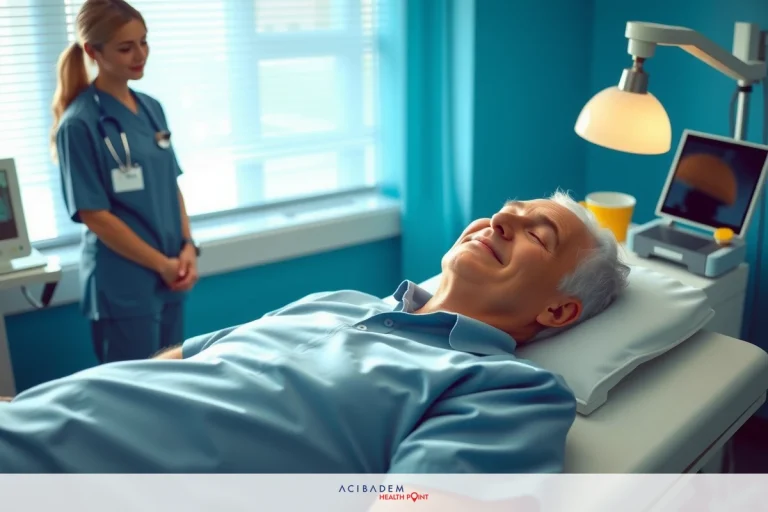How effective is cryotherapy in treating prostate cancer?
How effective is cryotherapy in treating prostate cancer? Cryotherapy for prostate cancer offers a treatment that targets abnormal cells with extreme cold. Doctors guide small needles into the tumor and then freeze it aiming to kill the cancerous tissue. Many people seek this option when considering various treatments available for their condition. It has shown promising results and could be an alternative when traditional methods are not suitable.Men diagnosed with prostate cancer often have many therapies to choose from each with its own set of pros and cons. Cryotherapy comes across as less invasive than other forms of treatment leading to potentially quicker recovery times. Knowing what to expect can help patients make informed decisions about their health care options.
Understanding how well cryotherapy works can give hope to those affected by prostate cancer. Success rates vary depending on several factors including the stage of the disease and overall patient health. With medical research advancing rapidly treatments like cryotherapy are constantly being refined for better outcomes.
Benefits of Cryotherapy
Cryotherapy is gaining attention as a powerful treatment for prostate cancer. It works by freezing the cancer cells which causes them to die off. This method can be very effective especially in early stages of the disease. Patients often experience fewer side effects compared to other treatments.
One major benefit of cryotherapy is its minimally invasive nature. Unlike surgery it doesn’t require large incisions. This means patients usually have less pain and shorter hospital stays. Recovery times are generally quicker allowing people to return to their daily lives faster.
Another advantage lies in cryotherapy’s precision. The treatment targets only the affected areas sparing healthy tissue around the tumor. This targeted approach helps reduce the risk of potential complications and preserves more prostate function.
Many choose cryotherapy because it can be repeated if necessary. If prostate cancer returns or persists after initial treatment doctors may opt for another round of cryotherapy. Its effectiveness makes it a viable option for those seeking alternative treatments that offer tangible benefits.
Procedure Overview
The cryotherapy procedure begins with careful planning by a medical team. This team is usually made up of urologists, oncologists, and radiologists. They work together to map out the exact location of the prostate cancer using imaging tools. These images guide where the needles will be placed during treatment.
Before starting cryotherapy patients receive local or general anesthesia for comfort. Once asleep or numb thin needles are inserted through the skin into the prostate tumor. The placement of these needles is crucial for ensuring that all cancerous tissue is targeted.
After inserting the needles into position cold gases are passed through them to freeze the tissue. This creates ice balls around each needle tip which destroy cancer cells on contact. Doctors carefully monitor temperature sensors to ensure only cancerous areas are affected.
At completion of freezing cycles doctors allow thawing and then may repeat freezing if needed for better results. Patients typically stay under observation after this process before being released from care. Follow-up

appointments check recovery progress and effectiveness of this non-surgical treatment option for prostate cancer.
Success Rates and Studies
Studies show varied success rates for cryotherapy in treating prostate cancer. These rates depend on the stage of cancer and individual patient factors. Generally cryotherapy is more effective in early-stage cancers where tumors are localized. In such cases it can achieve similar results to traditional treatments like surgery or radiation.
Long-term effectiveness is a key focus area for researchers studying cryotherapy. Some studies suggest that when used as an initial treatment cryotherapy has a high rate of success in controlling prostate cancer. This means many patients remain free from cancer for years following the procedure.
It’s also important to note that repeat procedures might be needed over time. Cryotherapy offers this flexibility without additional significant risks or complications. As research continues to grow doctors are learning how best to use cryotherapy alongside other treatments to improve outcomes for their patients with prostate cancer.
Side Effects and Risks
How effective is cryotherapy in treating prostate cancer? Cryotherapy, while effective, carries potential side effects like any medical procedure. Most commonly patients report discomfort or pain at the needle insertion site. Swelling can also occur in the treated area but typically diminishes over time. In some cases bruising may be visible around these sites as well.
Urinary symptoms are another possible side effect of cryotherapy for prostate cancer. These include urgency or frequency in urination and sometimes blood in the urine. However these symptoms often resolve within a few days to weeks post-treatment.
A rarer but more serious risk involves injury to nearby organs or tissue due to freezing temperatures. This is why precise imaging and careful monitoring during the procedure are critical to minimize such risks. The expertise of the medical team plays a significant role in reducing complications.
Sexual function may be affected after undergoing cryotherapy treatment for prostate cancer. Some men experience changes like erectile dysfunction; however advances in technique have reduced this risk considerably over time.
It’s important for patients considering cryotherapy to discuss all potential risks with their healthcare provider beforehand. Being aware of what could happen helps individuals make informed decisions about their treatment options for prostate cancer based on both effectiveness and personal comfort with associated risks.
Recovery Process
After cryotherapy the recovery process for prostate cancer patients begins immediately. Most individuals can go home the same day as their treatment. The first week post-procedure is crucial for rest and healing. Patients are advised to avoid strenuous activities during this period.
Pain management is a key part of recovery after cryotherapy. Doctors usually prescribe medication to manage any discomfort from the procedure. Over-the-counter pain relievers may also be recommended if appropriate for the patient’s needs.
Monitoring urinary function is essential during recovery from cryotherapy. Some men might experience changes in urination such as frequency or urgency but these symptoms typically improve with time. Drinking plenty of fluids and following doctor’s advice helps ease this part of recovery.
It’s common to have follow-up appointments shortly after cryotherapy treatment. During these visits doctors check on healing progress and address any concerns about side effects or symptoms. They may also use scans or tests to assess how effective the treatment was in targeting prostate cancer.
The overall goal during recovery is returning to normal life while ensuring health remains stable. With proper care and attention many patients find they can resume usual activities within a few weeks while continuing their journey toward wellness after prostate cancer treatment with cryotherapy.
Frequently Asked Questions
How long does cryotherapy take to treat prostate cancer?
The actual freezing part of the procedure typically lasts a few minutes per cycle with one or two cycles commonly needed.
Can I undergo cryotherapy if I have already had other treatments for prostate cancer?
Many patients can have cryotherapy after other treatments but it's important to consult with your doctor about your specific situation.
What is the success rate of cryotherapy in treating prostate cancer?
Success rates vary depending on factors like the stage and aggressiveness of the cancer; discuss this with your healthcare provider for detailed information relevant to you.









